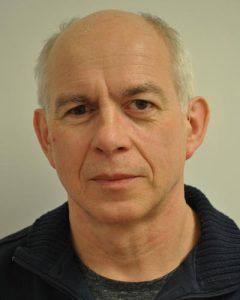There’s a lot going on these days. I don’t quite know whether it is right to congratulate Ståle on his new job, but would rather thank him for taking on the difficult task and the great responsibility of leading the department in the coming years. Ståle cannot solve BIO’s problems alone, we must solve them together, and with help from the faculty. Everyone is aware of the state of things and the room for maneuver is not large, but the sun and the ship have turned and we are on the right track, but still in the spring crisis. We better get to help Ståle prioritize hard and correctly so we avoid the cow dying while the grass grows. Several of the research groups working with marine (micro)biology and ecology are now threatened by retirements and we are approaching critical mass to be able to maintain teaching and research. If that happens, we can enter a negative spiral from which it will be difficult to get out. Hope the faculty can agree that BIO’s marine scientific profile should be more than salmon and that the necessary savings must be seen in a slightly more realistic perspective so that we avoid the most negative consequences of a full stop.
Then we get to congratulate NMBU on signing John Arvid, to put it in football terms – you said they had better football teams over there. A loss for BIO, but the scientific environment is solid so it is probably going well and this may also provide a basis for future national cooperation between BIO and NMBU.
Academically, there is also a lot of exciting things going on. Applications for AI centers and Digital Salmon are high on the university’s agenda. If we get this, it will affect both research and teaching at BIO and a Digital Salmon can become an important engine for a lot of new activity also in the fields of molecular biology, physiology and ecology. A larger research program on the Polar Sea of the Future is also in the pipeline. It may not have the same political attention as the KI centre, but for several research groups at BIO, participation in this could be just as important in the years to come.
The name doesn’t shame anyone, and it probably doesn’t mean much to us if a faculty gets a new name these days. I am a little more unsure whether this also applies to the names of the fields of study. Is it enough to have a field of study in Biology, or should we emphasize that biology is a diverse field and keep names such as Microbiology, Environmental Toxicology, Aquaculture Biology, etc.? I wonder what our students think about this, they are the ones who will wear the label.
Gunnar

